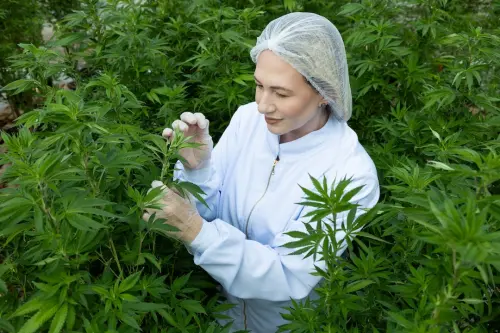SAO PAULO, Feb 12 (Reuters) - Embrapa, Brazil's renowned agricultural research agency credited with transforming the country into a major grains exporter, is now setting the stage for a 12-year research initiative aimed to potentially revolutionize the cultivation of cannabis in the agricultural powerhouse.
Embrapa's scientists, acclaimed for developing genetic varieties of grains, cotton, and vegetables tailored for Brazil's tropical climate, are optimistic that Brazil's health agency Anvisa will approve the cannabis research program this year.
Daniela Bittencourt, a researcher within Embrapa's cannabis work group, expressed excitement about the potential impact of genetic improvement on cannabis cultivation similar to their success with cotton over the past 50 years.
As part of its strategy, Embrapa intends to establish a cannabis seed bank, adapt varieties to Brazilian soil and climate, and collaborate in fostering regional cannabis production hubs nationwide.
Bittencourt revealed that approximately ten domestic and international companies have expressed interest in partnering with Embrapa for cannabis research, exploring diverse applications from medicine to food products and emphasizing traits beneficial for crop rotation and soil carbon fixation.
Embrapa's previous initiatives dating back to the 1970s, notably in soybean farming, revolutionized agricultural practices in Brazil, leading to a tenfold increase in soy output.
Following a Brazilian higher court decision in November permitting the cultivation of hemp, a type of cannabis with low levels of the psychoactive compound THC, for medicinal purposes, Anvisa has until May to establish regulations.
While recreational marijuana remains illegal in Brazil, the recent court ruling has set the stage for hemp cultivation, primarily for cannabidiol (CBD) and its industrial applications.
Kiara Cardoso, founder of DNA Solucoes em Biotecnologia, expressed optimism about the potential for large-scale hemp production in Brazil to cater to industries such as paper, textiles, and food processing.
Current rules may limit hemp cultivation to small indoor spaces adhering to stringent pharmaceutical supply chain protocols.
China, Brazil's top trading partner, leads global production and export of hemp, with countries like France and Paraguay also authorizing its cultivation for industrial and medicinal purposes.
